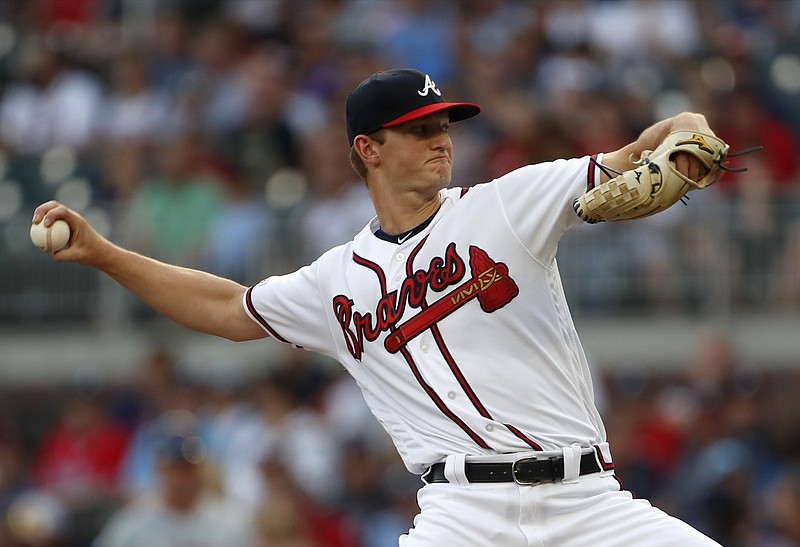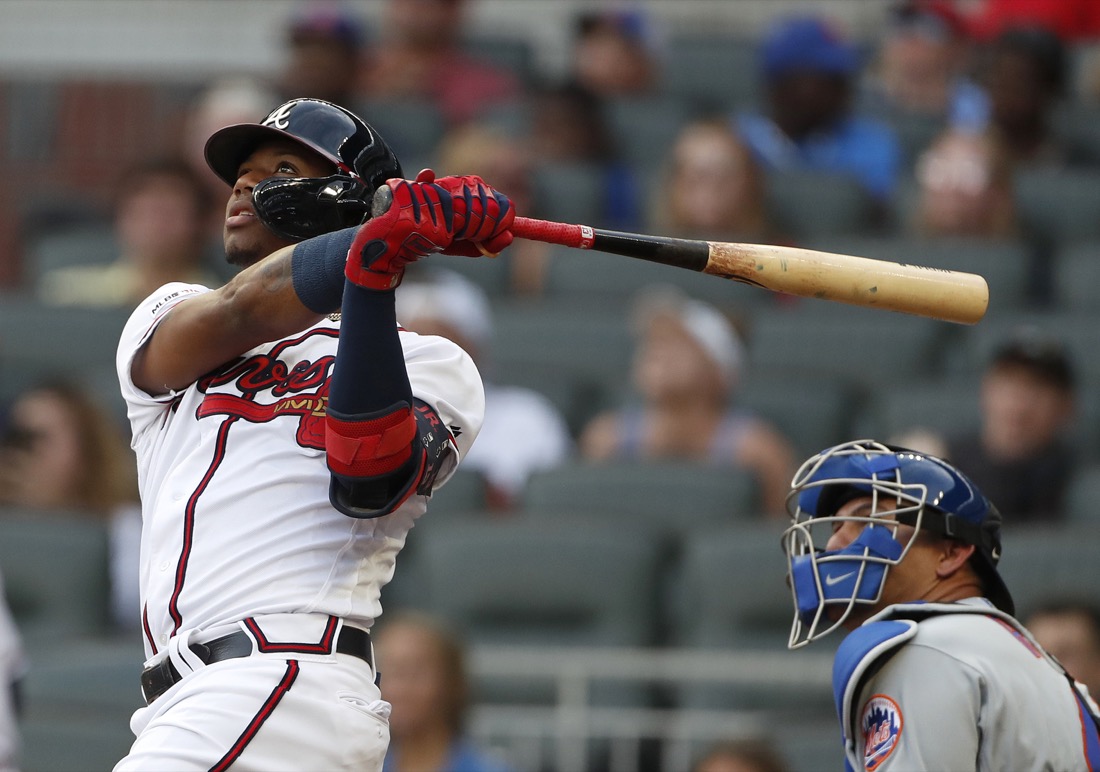Buy the Atlanta Braves or sell the Braves? That is the question on this 18th day of June, the season 45 percent done and the Bravos all alone atop the National League East.
At first glance, you'd be foolish not to buy a team that's won nine of its last 10 games (before Monday night), that's swatting home runs as if they were drunken flies, that's averaging nine runs an outing over its last eight games with an average margin of victory of 3.1 runs.
Bullpen? Who needs a bullpen when you can put up football scores at the plate?
But that's just it. Good pitching almost always beats good hitting come October. And while the Atlanta pitching may not be awful, its 347 runs allowed heading into Monday night's visit from the New York Mets was only the eighth best total in the 15-team NL.
Of course, the Braves' positive run differential of 39 was fourth best, trailing only the Los Angeles Dodgers (111), Chicago Cubs (61) and Arizona Diamondbacks (58), and their 386 runs scored heading into the Mets game were second only to Colorado's altitude-aided 405.
So maybe it won't matter. Maybe they'll just keep swinging for the fences to great success, such as they have thus far in June, when, according to MLB.com, they've gone 12-3 to start the month despite an earned run average from their starting pitching of 4.60.
When you can go 12-3 while you're surrendering an average of 4.9 runs in those 15 games, you just might be the next coming of Cincinnati's 1976 Big Red Machine or Pittsburgh's 1979 Lumber Company, two offenses that were too good for any pitching staff to tame over a seven-game series.
This quote from Atlanta manager Brian Snitker over the weekend is also worth repeating regarding his team's offensive prowess: "Guys are starting to feel it. I kind of felt as the weather got warm we'd get going."
And the weather's not going to cool down hee-uh in the Deep South until October at the earliest, which is more good news for a Braves Nation that hasn't seen its diamond darlings win a postseason series since 2001 in the divisional round.
But because it is only June, and Saturday night closer Luke Jackson blew his sixth save in his last 16 attempts, and the Braves brass elected not to pay what was necessary to return former Atlanta closer Craig Kimbrel to the bullpen, the postseason possibilities are a justifiable cause for concern. Especially given the fact that the Dodgers have surrendered just 260 runs to date and the Cubs only 302.
Whatever the current standings, those two teams, along with the Phillies - who entered Monday night 2 1/2 games behind the Braves after dropping two out of three in Atlanta over the weekend - would appear to be the Bravos' biggest threats moving forward, and all three of those teams look to be better on the mound. At least as the Big Peach Nine are currently constructed.
That doesn't mean moves can't or won't be made. The Braves still have 43 days to wheel and deal before the July 31 trade deadline. But must they alter not to falter? Could this team change nothing going forward without going backward?
It could. And two quotes from Snitker during this past weekend's series against the Phillies at least somewhat hint of bullpen shuffles without a trade.
Of Jackson's struggles of late - he's given up at least one run in seven of his last 11 outings - the Braves skipper told MLB.com, "It's just the life of a closer or the guy pitching in the ninth inning. You've got to have a short memory."
Read that first statement closely. It's just the life of a closer or the guy pitching the ninth inning. Doesn't sound like Snitker is convinced Jackson can continue to close, despite his sterling 0.42 ERA and .197 batting average allowed over 19 appearances from late April through mid-May.
Jackson's averages over his last 11 appearances? Try a 4.97 ERA and an opponents' batting average of .321, which certainly sounds more like a guy pitching the ninth than a true closer.
All of which brings us to lefty A.J. Minter, who originally was perceived to be the closer after Arodys Vizcaíno was lost at the beginning of the season to injury.
After a demotion to Class AAA Gwinnett following a string of frustrating appearances, Minter returned to the big club last week, promptly recording two strikeouts in a middle relief role against the Phillies on Saturday. The second of those strikeouts came against Bryce Harper, who fanned on a 97.5-mph Minter fastball.
Afterward, Snitker said of Minter: "Today was probably the best I've seen him all year. He looked like his old self. The velocity ticked up, and the cutter was good. That's the best he's looked since we started in February, which is really encouraging."
Especially if you're searching for a true closer in that final inning rather than merely some guy to pitch the ninth. Because come the postseason, the difference in those two is too often the difference between victory and defeat, as the Braves have come to know all too well in the 17 Octobers that have come and gone without a single series win since 2001.
Contact Mark Wiedmer at mwiedmer@timesfreepress.com.


